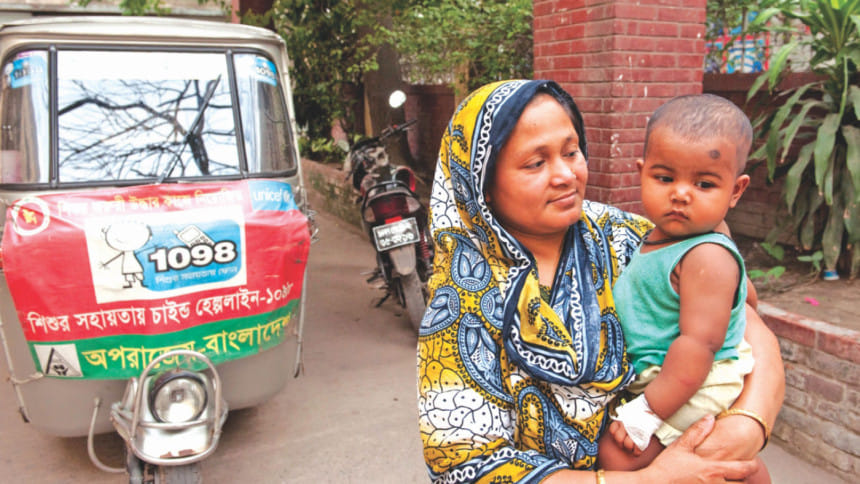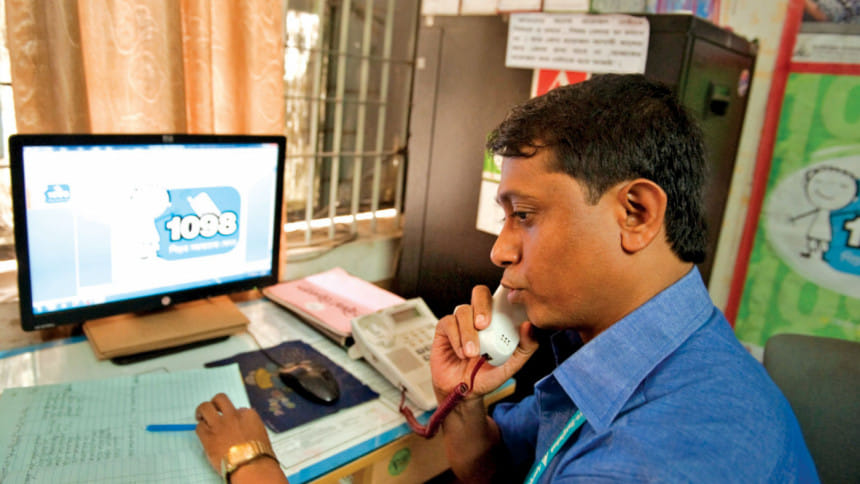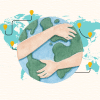Protecting the Future

Child abuse is no new story in our country. Especially after seeing various child killing incidents just this year, it has been proved to us all over again that the vulnerable youth of the under-priviledged society suffer from sheer neglect from the adult members of the country. To address the needs of these children, UNICEF launched a Child Protection Package. A part of this child protection package was the Child Help Line, which they had initially piloted in Old Dhaka.
"After a 4-year long pilot, in our evaluation, it was mentioned that not only does this helpline work, it is almost mandatory to make it a nationwide initiative," says Shabnaaz Zahereen, Child Protection Specialist, UNICEF.
On October 12, 2015, Grameenphone partnered with UNICEF to support the extension of the first-ever 'Child Help Line – 1098' in Bangladesh by signing a formal agreement. The partnership agreement was signed at a hotel in Dhaka city by UNICEF Bangladesh Representative Edouard Beigbeder and Grameenphone CEO Rajeev Sethi on behalf of their respective organisations. The toll-free Child Help Line number '1098', is a government project implemented by the Department of Social Services under the Ministry of Social Welfare and supported by UNICEF in collaboration with partner NGO - Aporajayo Bangladesh. It operates a 24-hour telephone line and is providing emergency support services to children at risk, as well as to adults who are concerned about certain children. The service links children with existing social protection services through rescue, safe shelter, referral and networking.

The Help Line provides emergency support services to children at risk throughout the country, and can be contacted from any phone operator. It is a 24 hour toll-free service. "Since the Children's Act has been implemented, every police station around the country has a Child Affairs Officer, and our help line is linked with each and every one of them," says Shabnaaz Zahereen.
Once the call is made, there is a rescue team provided, which is also a part of the Child Protection Package. This rescue team mainly comprises of volunteers from different NGOs around the country. After the rescuing, comes the rehabilitating. There are Emergency Night Shelters available in urban areas where vulnerable youths can spend the night, there are also other safe homes provided by different NGOs.
"We also provide conditional cash transfer to families who are below the poverty line or have children who work in hazardous environments. Although, before we provide them with the money, we have some conditions for them. These conditions are: if there is any child in the family who is a victim of child labour, he or she must leave the job; the children of the family have to be provided with education, no child from the family can be forced become a victim of child marriage, and all must remain within the family. This particular initiative is to improve sustainability for such families," says Shabnaaz.
Some of the initiatives and projects in the package still only apply to certain urban areas in the country, but have an urgent need to go nationwide. "We're showcasing the models for child protection in the country. We are doing everything we can, and are also providing evaluations to show the need of such packages," says Shabnaaz. Now it is up to the government and other developing partners and agencies to endorse such packages and spread them throughout the nation to protect its children, and to ultimately protect its future.
If you know of a child in distress, please call 1098 and save a life.

 For all latest news, follow The Daily Star's Google News channel.
For all latest news, follow The Daily Star's Google News channel. 








Comments